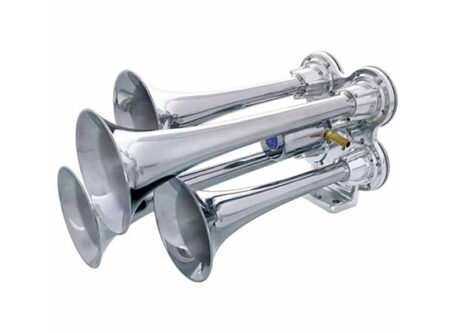Berkshire Hathaway, Haslam sue each other over value of Pilot Company
Berkshire Hathaway and Jimmy Haslam III are having a court battle, each alleging that the other is artificially affecting the value of Pilot Travel Centers just before Haslam has the option to sell his remaining stake in the company to Berkshire.
In a lawsuit filed by the Haslam family, Berkshire is being accused of changing Pilot’s accounting practices to depress the company’s value. Shortly after, Berkshire countersued, accusing Haslam of devising a scheme that artificially inflated the value of Pilot.
The lawsuits come just before Haslam is allowed to sell his remaining 20% stake in Pilot to Berkshire. In 2017, Berkshire acquired 38.6% of Pilot for nearly $3 billion. In January, Berkshire paid more than $8 billion for an additional 41.4% stake in the company. Per the contract, Haslam has the option each year to sell his remaining stake. That option begins Jan. 1, 2024, and is good for 60 days.
Haslam’s lawsuit
Filed on Oct. 26, Haslam’s lawsuit claims that Berkshire is manipulating the value of Pilot to get a lower price for the remaining 20% stake in the company.
The value of Pilot when Berkshire acquired its current stake was determined by multiplying the company’s earnings before interest and taxes by 10, with adjustments for cash and debt. That same formula is to be used in the event Haslam exercises his option to sell the remaining 20% stake.
Berkshire took control of Pilot in January. February’s monthly financial statement is consistent with the company’s historical accounting procedures, according to the complaint. However, the lawsuit claims that Berkshire applied “pushdown” accounting in March’s financial statement.
Pushdown accounting is when the financial statements of an acquired company, in this case Pilot, are calculated using the acquirer’s (Berkshire) accounting basis. The purchase price is therefore “pushed down” to the acquired company. Consequently, Pilot’s assets and liabilities reflect the purchase price rather than historical cost. Pushdown accounting is allowed under the U.S. Generally Accepted Accounting Principles.
Although the accounting method does not change the value or performance of Pilot’s business, Haslam argues that it artificially depresses the reported earnings. Relevant to the sale of Haslam’s 20% stake, the accounting method reduces the company’s earnings before interest and taxes.
According to the lawsuit, Haslam repeatedly objected to Berkshire’s use of pushdown accounting and requested assurances that it will not be used on financial statements for fiscal year 2023. During a board meeting, Haslam proposed a resolution over the matter. However, that resolution was voted down by five Berkshire representatives on the board of seven members.
Berkshire’s lawsuit
One month after Haslam filed the lawsuit, Berkshire filed a countersuit, claiming Haslam devised a scheme to inflate the value of Pilot.
According to the lawsuit, Haslam is being accused of secretly promising “massive” side payments to numerous high-level Pilot employees. Those payments, Berkshire argues, induced the employees to prioritize Pilot’s short-term 2023 earnings over the company’s long-term value. As a result, Haslam’s value of his 20% stake would be worth more when it is time to sell at the beginning of 2024.
According to the complaint, payments made out of Haslam’s pockets were outside of Pilot’s official compensation plan and would be more than the employees’ annual salaries “by an order of magnitude.” Consequently, Berkshire is unable to determine which business decisions at Pilot this year favored Haslam’s interests over the company’s.
The revelation of a possible scheme came after Haslam filed his lawsuit against Berkshire.
The lawsuit claims that in November, a senior Pilot executive told the CEO that Haslam promised personally to pay him a bonus linked to the amount Haslam would receive if he decides to sell his 20% stake in 2024. A similar promise was made to about 15 other senior executives in March, the lawsuit claims.
Among the many executives offered the bonus, Berkshire claims that Haslam approached employees of Pilot’s fuel division, which buys and sells fuel for retail and wholesale. The lawsuit argues that those employees were targeted because they have an extraordinary amount of everyday discretion to make trading decisions with significant effects on the company’s short-term and long-term profitability.
The lawsuit states that as a member of Pilot’s board of managers, Haslam owed “fiduciary duties of loyalty and care” to Pilot. Berkshire argues that Haslam breached those duties by diverting employees’ loyalty for personal gain.
Berkshire is asking the court to bar Haslam from exercising his option to sell his remaining stake in 2024. LL









